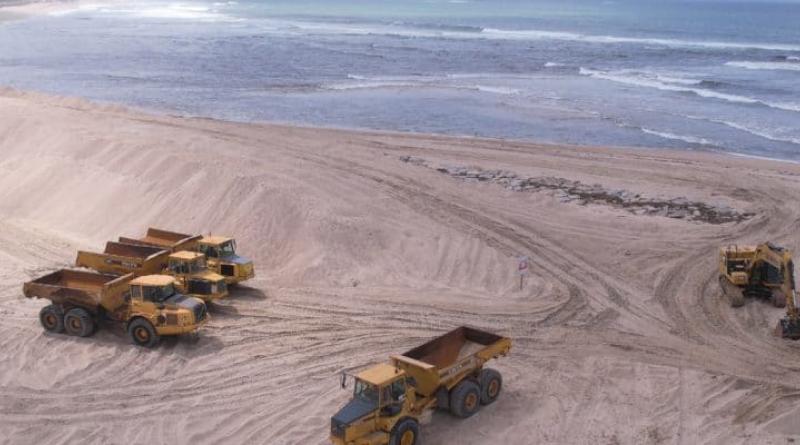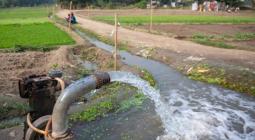AFRICA: Overexploitation of sand degrades coasts and aquatic biodiversity

Sand must be recognized as a strategic resource. This is the main recommendation of a new report by the United Nations Environment Programme (UNEP), which also calls for the development of an international standard on how to extract sand from the marine environment. Not only is the resource not inexhaustible, but its overexploitation weakens marine ecosystems.
The United Nations Environment Programme (UNEP) is concerned about the extraction and misuse of sand from the marine environment. In its new report published on April 26, 2022, the UN agency reveals that 50 billion tons of sand are extracted from the marine environment each year. It is the most used resource after water. And at this rate, the report warns, the resource will be exhausted.
In addition to its depletion, the overexploitation of sand in marine and river environments has consequences on the environment. According to the report’s authors, sand extraction in ecosystems where it plays a crucial role, such as rivers and coastal or marine ecosystems, can lead to erosion, salinization of aquifers, loss of storm surge protection and impacts on biodiversity, posing a threat to livelihoods through, among other things, water supply, food production, fishing or the tourism industry.
Putting the sand industry in a circular economy
Sand is essential for economic development, as it is involved in the production of concrete and the construction of vital infrastructure such as housing, roads or hospitals. However, sand also plays a vital role in maintaining biodiversity by providing habitats and breeding grounds for diverse flora and fauna, including marine plants that act as carbon sinks or water filters.
For UNEP, it is time for sand to be extracted and used in a sustainable way. This includes developing an international standard on how to extract sand from the marine environment, banning sand extraction from beaches because of its importance to coastal resilience, and pricing sand, taking into account its social and environmental value.
The UNEP report also proposes a move towards a circular sand economy. This involves banning the landfilling of mineral waste and encouraging the reuse of sand in public procurement. Crushed rock or recycled construction and demolition materials, as well as “heavy mineral sand” from mine tailings, are among the viable alternatives to sand that should also be promoted, the report says.
Boris Ngounou | https://www.afrik21.africa/



